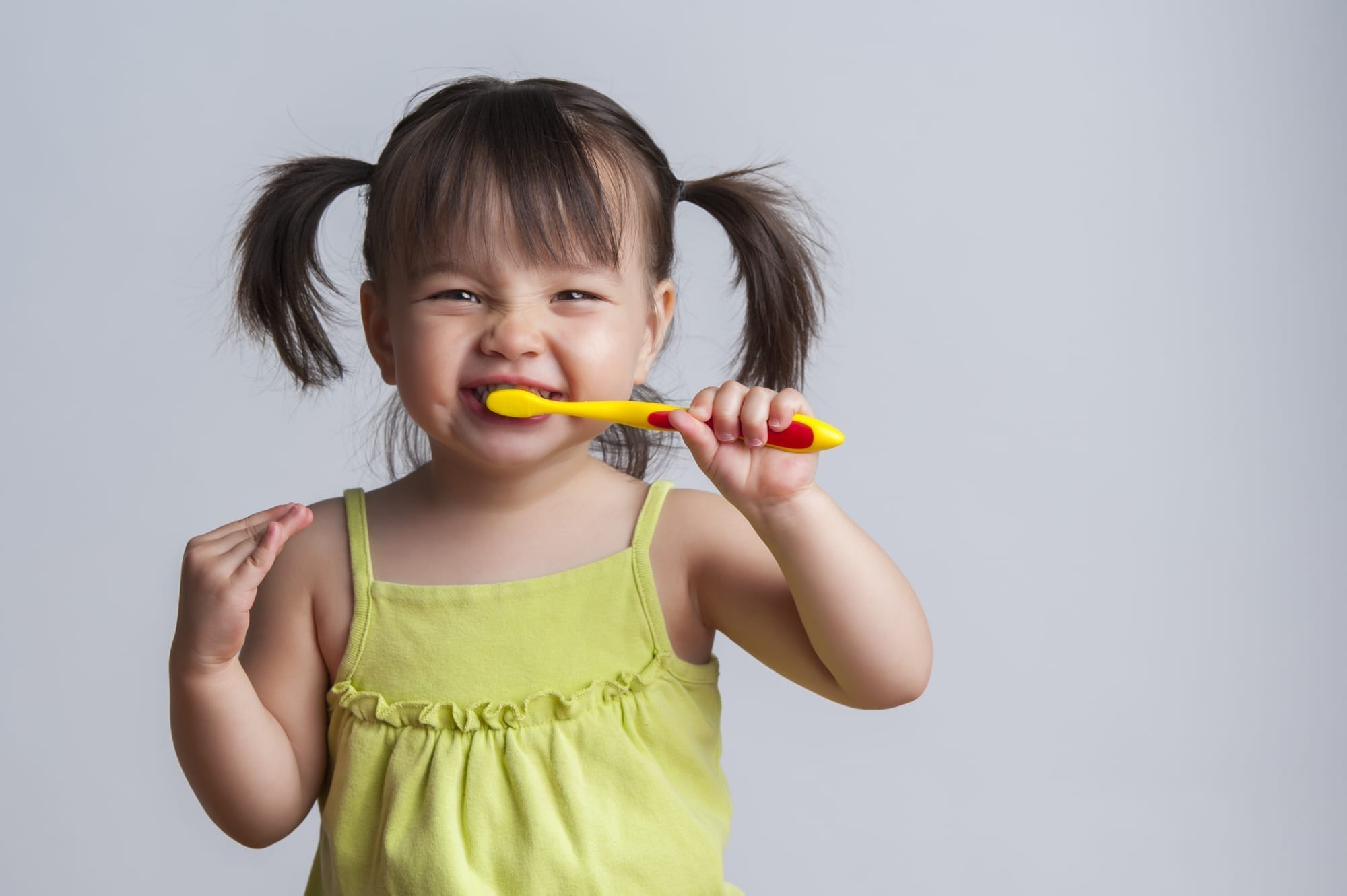
Dental care for infants and children can seem overwhelming but having a knowledgeable and helpful pediatric dentist on your team can make everything much simpler! A great pediatric dentist is passionate about three things: dental care, children, and patient education. This trifecta ensures that the dentist you choose will care for your little one’s oral development just as much as you do AND have the tools to teach you everything you need to know.
Our pediatric dentist, Dr. Matt, certainly meets the standard of a great pediatric dentist. For this reason, he is the go-to guy for so many parents in the Overland Park area.
Here are some of the most frequent questions he receives from concerned and caring parents every day:
1. How do I best clean my baby’s teeth?
Your baby’s teeth should be cleaned as soon as they erupt. Simply use a clean, damp washcloth, finger brush, or gauze pad to wipe the top, front, and back of the new teeth and the tip of the tongue. This should be done after meals and at bedtime.
You may also use a pediatric-dentist-approved baby toothbrush with a rice-grain-sized amount of toothpaste. These toothbrushes are extremely soft and have no more than three rows of bristles. Toothbrushes or finger brushes that are more than two months old should be thrown out and replaced.
2. How old should my baby be before I introduce her to fluoride toothpaste?
As soon as the first tooth emerges! Dentists used to recommend waiting until age two, but new discoveries have changed that fact. As stated in question one, you’ll only use a rice-grain-sized smear of toothpaste until your baby reaches three years of age.
3. How do I keep my kid’s teeth healthy?
For children above age three, follow these guidelines:
- Brush with fluoride toothpaste in the morning and evening
- Floss daily
- Reduce sugar in their diet
- Drink lots of water
- Visit a pediatric dentist regularly
To receive more detailed oral health tips, visit a pediatric dentist who can evaluate your child’s mouth and determine his specific oral health needs.
4. What should I do if my child has a toothache?
If your child is complaining about tooth pain, first rinse the area with warm saltwater. Then, place a cold compress on the side of the face where the pain is (especially if it’s swollen). If necessary, give him or her children’s pain medication. Be sure to follow the dosage instructions on the bottle. Finally, contact your pediatric dentist.
If your child is experiencing a fever, bleeding, or other concerning symptoms along with the toothache, contact your pediatric dentist immediately for an emergency visit.
5. How are thumb sucking and pacifier habits harmful?
Fortunately, most children stop these habits on their own so they don’t pose any problems. However, if your child still sucks his thumb or uses a pacifier past age three, you may need the help of a pediatric dentist to avoid oral development problems such as:
- Misalignment
- Overbite or underbite
- A lisp
- Sensitivity or changes to the roof of their mouth
6. At what age should a child brush their own teeth?
Most children learn to brush their teeth around age six. However, as the parent, you know your child best! It’s never too early to begin teaching your child to brush his own teeth. Just remember to oversee and assist him until you’re confident he’s doing it correctly.
7. When should my child receive their first dental exam?
At least six months after their first tooth emerges. The pediatric dentist will check to make sure everything is developing properly and give you tips on how to care for your child’s mouth.
8. What should I expect on our first visit?
Your child’s first visit to the dentist usually lasts between 20 and 40 minutes. It will be very laidback and simple. Not every dentist is the same, but here’s what our first-time patient experience includes:
- Office tour
- Meeting the dentist and team members
- Reviewing your child’s dental and medical history
- Discussion about healthy teeth and jaw development
- Review of your oral healthcare routine
- An oral exam
- A conversation about your child’s oral health needs
If appropriate, the pediatric dentist may suggest a dental cleaning.
9. How frequently should a baby see the dentist?
Infants, toddlers, adolescents, and adults should all visit the dentist every six months. This is the best way to prevent cavities and other dental problems.
In some cases, your pediatric dentist may recommend more frequent visits.
10. What’s the difference between a pediatric dentist and a family dentist?
Pediatric dentists are to dentistry what pediatricians are to medicine. Pediatric dentists complete two to three years of specialty training that makes them experts on children’s oral health development. Family dentists treat patients of all ages, including children, but without the same training.
To meet with our pediatric dentist for specific advice about your child’s mouth, call (913) 685-9990 today.